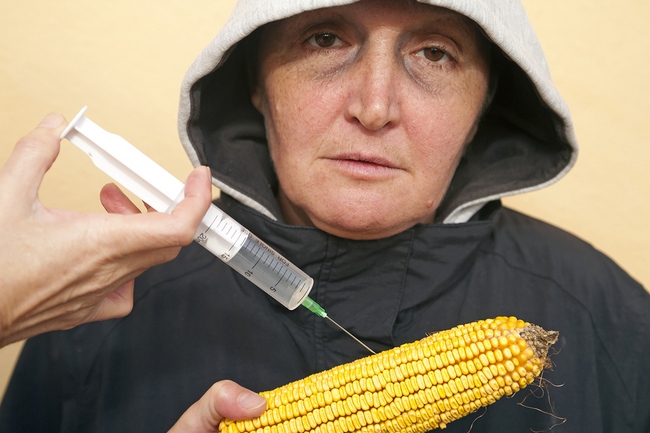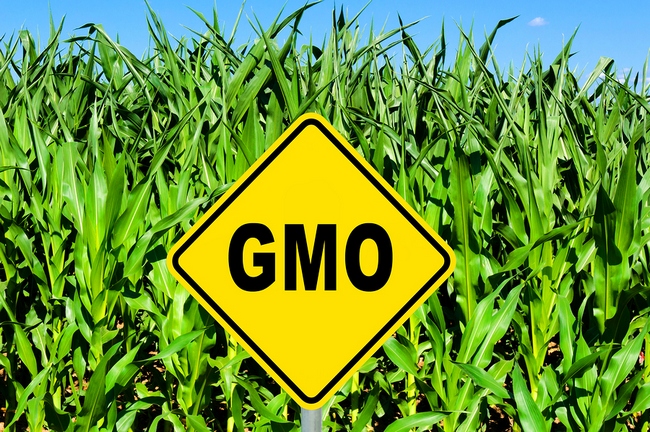- Make It Yourself Lavender Heart-Shaped Bath Bombs!
- 20 Things You Never Knew About “Down There”
- 12 Best Foods For Those Suffering From Arthritis Pain
- 12 Personal Hygiene Mistakes Almost Everyone Makes (Mom Never Told You About #4!)
- 15 Medicinal Plants And Herbs From The Cherokee People
- 12 Mind-Blowing Benefits Of Drinking Coconut Water During Pregnancy
- 12 Outstanding Winter Foods That Won’t Fatten You Up Like A Christmas Turkey
The Very Real Health Dangers Of GMOs

Photo credit: bigstock
King’s College London School of Medicine recently presented a study regarding what Dr. Michael Antoniou calls “Responsible Technology.” Dr. Antoniou is the lead author of this investigative study, and he warns against using genetic engineering for the development of either animal feed or for crops intended for human consumption.
Although big companies try to tell the world that genetically engineered or modified food is very much the same as the natural breeding process that has been employed by farmers for hundreds of years, it’s just that companies are “speeding up” the process.
The difference between genetic engineering and normal plant breeding is that the tissue culture processes are highly mutagenic and not at all precise. This can lead to unpredictable, and therefore dangerous, mutations in the DNA of plants and their biochemical makeup.
This is why many GE crops have allergenic effects and unexpected toxic effects, but these types of nutritional problems are the least of genetically engineered food’s problems.
Dr. Antoniou explains that any plant that has been created by transgenic means can be very, very dangerous. First off, radiation-induced mutation breeding allows for changes in plants that are frequently unexpected and often unwanted.
When they attempt to create a GE food, they start with a tissue culture from the plant they want, which contains literally hundreds of thousands of cells. Some plants will pick up the genetically modified genes and pass them along to their progeny, while others do not. The culture created is then treated to ensure that the plant eliminates all other cells except for those with GM traits.
This might not sound that dangerous, but the final GE process is to treat the plant’s final cells with hormones to stimulate the GM cells and cause them to reproduce. This changes the entire plant to a new form that can be patented.
If this process continues, imagine what can happen if we remove or eliminate all “natural” seeds and plant life from the earth? This is also being done with animals, in case you haven’t heard — creating pigs that are bigger and salmon that grows twice as fast as normal.
Continue to Page 2

Photo credit: bigstock.com
If you are what you eat, then is it any wonder that we see GE foods and their pesticides causing cancer? Could GE foods explain the expanding disease and cancer rates around the world?
“Natural” is perhaps the most misleading word. Far from natural, the transformation through chemical alteration of our wild plants and animals into food is by far the single most dramatic experiment in genetic engineering ever completed. Very few of the species that humans consume today look anything like, nor do they nutritionally resemble, their wild counterparts. This is the results of hundreds, and in some cases thousands, of years of selective breeding by humans. However, with GE foods, we have completely remade the genetic makeup of both food crops and animals within a matter of a couple decades!
One former genetic engineer, Dr. John Fagan, has returned $614,000 in grant money to the National Institutes of health, because of his concerns about the ethics and safety.
If both a geneticist and a molecular biologist have serious concerns regarding GE and GMO’s, shouldn’t we as well? Shouldn’t the world be questioning and taking a very hard look at whether or not these kinds of foods and animals should be allowed into the world’s food supply?
Continue to Page 3

Photo credit: bigstock
Any person with an elementary school education can read studies showing strong links between GE crops and cancer, bowel problems, organ failure, reproductive problems, and many, many more.
A recent report, titled GMO Myths and Truths, is a large body of peer-reviewed scientific evidence that shows the hazards to health, and our environment, being caused by these GE crops and animals. In fact, the initiative for this report comes from two genetic engineers who believe that there are very good reasons for the public to be very wary of these products.
Research has shown that GM crops have harmful effects on lab animals in trials done with feeding and on the dangers to our environment during cultivation. These crops increase the use of pesticides, yet, have failed to increase yields as promised. Reports show that there are far better, safer and more effective alternatives to meeting the food needs of today’s world.
READ ALSO: Top 12 Ways You Can Avoid GMO Foods And Save Your Life!
Where does it all end? If GMO products are so safe and natural, what is the objection to labeling them?
Protect yourself and your family. Be very, very certain that you know exactly where your food is coming from.
References:
































